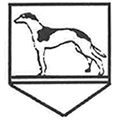PSHE
PSHE At Flixton Primary School
At Flixton Primary School we aim to promote healthy, independent and responsible members of society. We encourage all our pupils to play a positive role in contributing to school life. Our pupils are given opportunities in PSHE lessons and assemblies to develop confidence, self-motivation and an understanding of their rights and responsibilities within our diverse society.
We teach PSHE in a variety of ways: as a discrete subject, via assemblies and cross curricular through other subjects such as RE, History, Geography and Science. We also feel that PSHE is of vital importance post COVID, therefore it is expected to have some sort of invovlement in all classrooms on daily basis.
How do we teach PSHE...
PSHE is split into 4 main catagories; SCARF and The Zones of Regulation followed by Drugs Education and Sex/Relationships Education which became statutory in all primary schools in September 2020.
| SCARF |
|
Coram Life Education & SCARF is the UK's leading charity provider of PSHE and wellbeing education in primary schools. What will my child learn in SCARF lessons?
|
| The Zones of Regulation |
|
The Zones of Regulation framework and curriculum (Kuypers, 2011) teaches students scaffolded skills toward developing a metacognitive pathway to build awareness of their feelings/internal state and utilize a variety of tools and strategies for regulation, prosocial skills, self-care, and overall wellness. This includes exploring tools and strategies for mindfulness, sensory integration, movement, thinking strategies, wellness, and healthy connection with others. The Zones of Regulation provides a common language and compassionate framework to support positive mental health and skill development for all, while serving as an inclusion strategy for neurodiverse learners, those who have experienced trauma, and/or have specific needs in terms of social, emotional, and behavioral development.
The Red Zone is used to describe extremely heightened states of alertness and intense emotions. A person may be elated or experiencing anger, rage, devastation, or terror when in the Red Zone.
The Zones can be compared to traffic signs. When given a green light or in the Green Zone, one is “good to go”. A yellow sign means be aware or take caution, which applies to the Yellow Zone. A red light or stop sign means stop, and when one is the Red Zone this often is the case. The Blue Zone can be compared to the rest area signs where one goes to rest or re-energize. |
| Relationship / Sex Education |
|
What is RSE?... Relationship and Sex Education, previously called Sex and Relationships Education, is a form of sex education taught in UK schools. RSE focuses on exploring the emotional, social and physical aspects of growing up, having relationships, engaging in sex, and learning about human sexuality and sexual health. The Department for Education has made changes to relationships and sex education following nationwide consultation which came into effect from September 2020 and all schools are required to comply with the updated requirements. The statutory guidance can be found at: As RSE can be a sensitive subject to teach, we have included some FAQ's you my wish to read:
Which year groups are taught RSE? RSE is taught from nursery right the way through the school to year 6. However, the content of RSE lessons differs for each year group. If you click onto the documents at the bottom of the page you will be able to select your child's year group and inform yourselves of what they will be learning in their RSE lessons. When is RSE taught during the academic year? RSE lessons are taught in the Summer term each year. How will I know when my child is being taught RSE? Prior to all RSE lessons being taught, we send a letter home to inform parents.
|
 Flixton Primary School
Flixton Primary School





.png)
